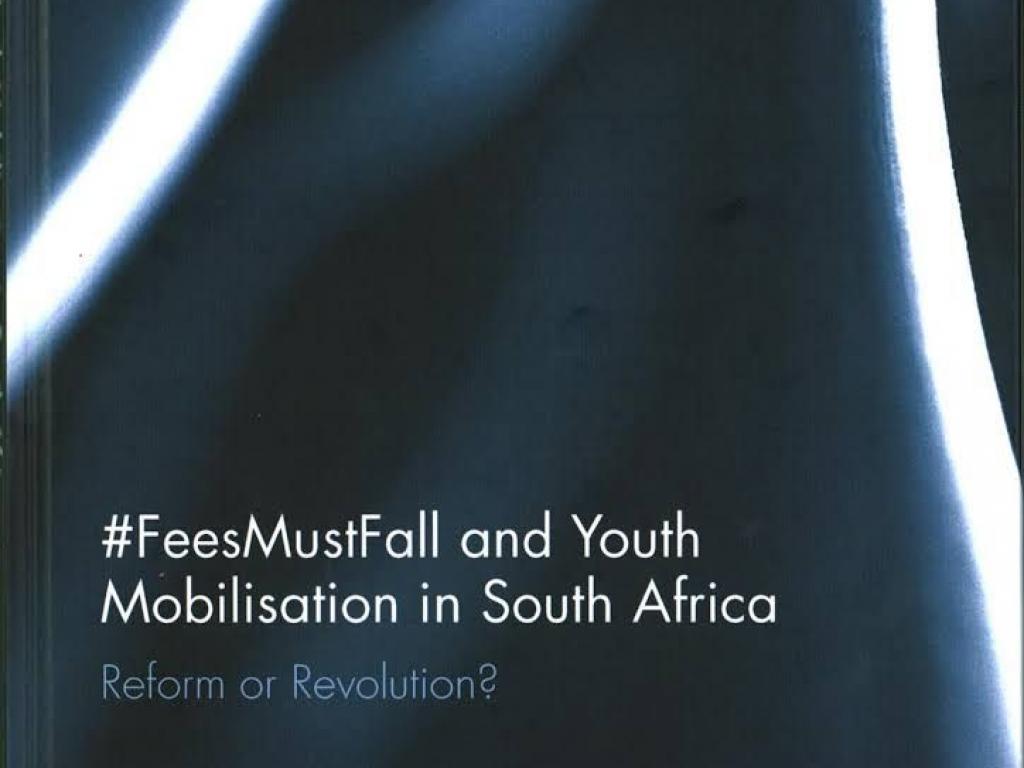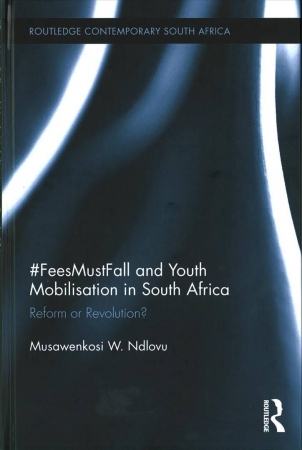CFMS lecturer publishes a book on Fees Must Fall


Dr Musawenkosi Ndlovu, senior lecturer at the Centre for Film and Media Studies, will launch his book on Fees Must Fall on Wednesday, 23 August 2017, 17:00, at the Centre for African Studies Gallery, Harry Oppenheimer Institute Building, Upper Campus, UCT.
The book, #FeesMustFall and Youth Mobilisation in South Africa: Reform or Revolution?, looks at the FeesMustFall protest and its impact on universities, the country and the South African political landscape.
“The 2015/16 university student protests were comparatively massive, nation-wide, of the internet/social media age, and had profound implications for the country’s young democracy, and the African National Congress (ANC)-led SA government,” Ndlovu said. “Critically also, the protests were unprecedented in the new post-1994 democratic SA, with respect to scale, coordination and public attention.”
Ndlovu explained that the book also deals with questions of whether the #FeesMustFall protest (FMF) could lead to regime change or a revolution, while interrogating factors that tend to or that may cause a revolution.
“This frequent use of the word revolution and the term regime change, in relation to FMF, caused me to ask the following questions in this book #FeesMustFall and youth mobilisation in South Africa: reform or revolution? Were FMF protests, in and of themselves, a (call for) revolution or reform? If they were cries for reforms, will they then ever, in future, produce a revolution? If they will grow to produce a revolution, what kind of a revolution will it be? It is very important that we draw a distinction between reform and revolution because they both have serious implications in real life,” said Ndlovu.
The FMF protests, Ndlovu explained, are significantly worthy of studying because they were different from other forms of student protest that occurred in many South African university annually.
“Hardly were these protests confined to one or two under-resourced historically black universities as it had always tended to be the case in the past,” he said. “Their visibility and intensity, in fact, were far more severe at the relatively sufficiently-resourced historically white universities, where student protests had been, in the preceding twenty-one years of the post-apartheid SA, intermittent.”
During these protests, students were not confined to protesting with the confines of universities as has become common of student-led protests. They took their demands beyond university walls to both the national political and economic public spheres.
“When an economy that has objectively been growing suddenly declines; when the government is financially broke; when the ruling class is divided; when talk of rampant corruption is rife; when the enterprising classes feel the political arrangements impair their businesses; and, when, in mainly post-colonial Africa and in at least 10-20 years of independence, the youth that has mainly been loyal to a liberation movement turns against it, you may be at the beginning of something big. This book asks then if FMF was indeed the beginning of a revolution or just a call for reforms,” Ndlovu said.
The book will be available at the launch for purchase.